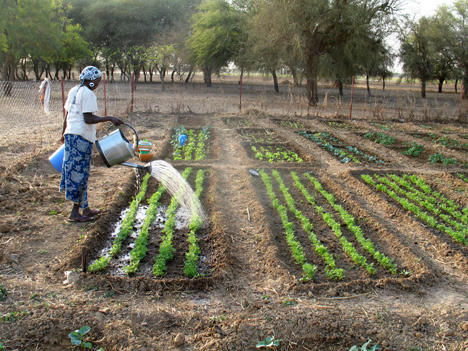
Humanitarian and Development
Place
Markoye, Burkina Faso
Sponsor
Frédéric Mathon
Grant
€15,000 to the Selection Committee at 2012/12/19
Project leader
Association l'Eau Partagée
Eau Partagée was created as an extension of the projects already initiated by Syndicat Intercommunal de Distribution d'Eau de la Corniche des Maures (SIDECM) with the population of Markoye in northern Burkina Faso, in the Oudalan region in the Sahel.
Since its foundation in June 2009, it has been conducting health education and promotion projects, implementing the Treaty for Eco-Civic Education and its "track approach", recognized by Unesco, aimed at trainers, teachers, regional leaders, companies, associations and political decision makers.
It participates in food empowerment campaigns, supplies emergency needs, organizes the sale of handicrafts, raffles, and other operations designed to raise funds to finance the development projects decided by the Sahel villagers.
A precarious sanitary situation
In Burkina Faso, pathologies - most of them water-related: bilharziasis, diarrhea, malaria, trachoma - are weakening the health of the population in alarming proportions. Apart from sporadic campaigns, no continuous approach to the prevention of these diseases exists. The population must therefore be helped to understand how environmental factors can damage their health, and the means available to limit, or even eradicate, these diseases.
Once this has been understood, the Eau Partagée project at Markoye gets the population to set personal and collective objectives: "health contracts". These can be in the form of commitments (adoption of a health regulation and monitoring compliance, protection of foods and water containers, washing of the hands and face, etc.) and also lead to the production of facilities (family or collective latrines, flow systems around the water points, collective washhouses, waste storage facilities, etc.).
Health, ecological, economic and social impacts
The project is unfolding in three phases, of which the first (2010/2012) allowed local concertation and methodology development. This led to staffing tests in a school environment and in a neighborhood, the compilation of a participative health specification and a film on the prevention of water-borne diseases in Fulfuldish, and the creation of a local association for health education.
The second phase (2012/2013) concerns the implementation of the project: diagnosis, teacher training, awareness raising, construction of facilities and accompanying measures.
A final review and tracking phase (2014) is scheduled, to identify future development guidelines. Beyond the anticipated impact on the health of the population, concrete ecological results are expected (protection of the pond and the groundwater table against wastewater releases, elimination of stagnant water zones, etc.), plus economic benefits (improving the skills of the artisans and general productivity of the population in line with the improvement of its state of health) and social benefits (increasing the residual capacity to focus on schoolwork, for example).
Sharing water to eradicate water-borne diseases in the Sahel
The Veolia Foundation, deeply concerned with water and health related issues, is specifically covering the construction of the facilities for the project, which is supported by many local and international institutions, including Unesco.

